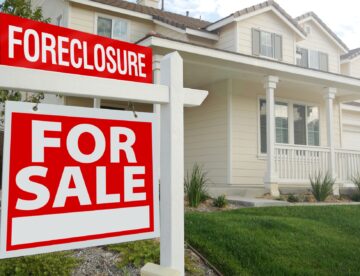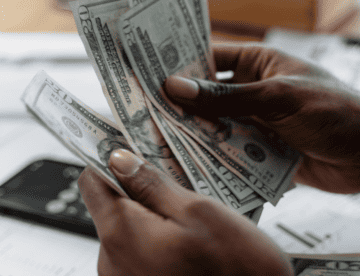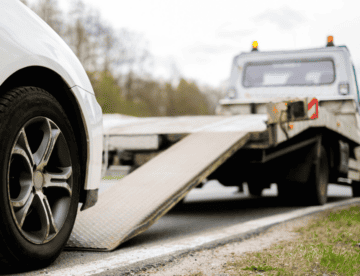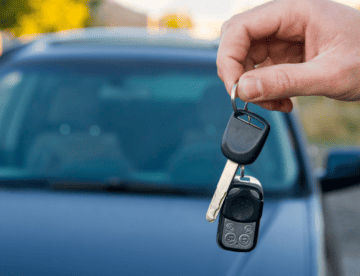
What is Bankruptcy? An Introduction
Declaring bankruptcy can seem like an overwhelming and complicated process, so it’s important to first understand what bankruptcy means. Bankruptcy is the legal process that provides an avenue for individuals and businesses to eliminate many types of debts and repay others. There are different types of bankruptcy, and your financial situation, assets and income will help determine your options to discharge some or all your debt or establish repayment plans with some or all of your creditors. Simply put, declaring bankruptcy is a way for you to get a fresh start and free yourself from the overwhelming weight of crushing debt.
What is Chapter 7 Bankruptcy?
If you’re considering filing for bankruptcy, you will discover there are several different types. Understanding which type you qualify for is critical when making the decision to file. The most common individual bankruptcy case is called a Chapter 7 bankruptcy.
Chapter 7 bankruptcy helps you discharge or eliminate unsecured debt without the need to repay those creditors. Unsecured debt includes credit cards, medical bills, unsecured loans, rent on prior apartments, amounts due on vehicles that have been repossessed or returned, and personal loans. Debts that are not eligible for a Chapter 7 bankruptcy discharge include child support, alimony, student loans, and most tax debt. A Chapter 7 bankruptcy may be a good option for people who have a large amount of unsecured debt, very few assets and who fall below a median income threshold set by the Department of Justice. Filing Chapter 7 can be a very powerful tool to eliminate overwhelming debts and get a fresh start rebuilding your credit.
What is Chapter 13 Bankruptcy?
If you are behind on your mortgage or your car payments and want to retain those assets, you will need to file a Chapter 13 bankruptcy. You may also have to file Chapter 13 if you have more equity in your home than is allowed for a Chapter 7. This form of bankruptcy is based around a repayment plan. Secured debt arrearage is restructured over time to allow a debtor to “catch up” late payments while continuing to make current monthly payments. You can have up to 60 months to get caught back up. Unsecured debts are not automatically discharged in a Chapter 13. You will be required to pay all, some or nothing to these creditors based on your disposable income & assets. Every case is unique, and your attorney will work with you to determine what is required in your case.
How Do You File Bankruptcy?
If you’ve decided that bankruptcy is the right choice for you, you will have questions about how to file for bankruptcy. Burrow & Associates offers a free consultation to all potential bankruptcy clients to establish what Chapter is appropriate for you. After your consultation, you will have an estimate for your monthly plan payment if you are considering a Chapter 13 and if you are eligible for a Chapter 7, we will tell you the fee structure for monthly payments as well. We strive to make the process as easy as possible for our clients.
What Happens When You File Bankruptcy?
After you’ve filed your bankruptcy petition, an automatic stay order immediately goes into effect. An automatic stay prevents creditors from taking collection action against you. Typically, the automatic stay remains in place for the duration of your case. An automatic stay provides immediate relief from wage garnishments, overdue payments on unsecured debt, any pending civil litigations against your debt, repossessions, and foreclosures. We will notify your mortgage company to stop any foreclosure proceedings, your employer to stop garnishments and we will begin working immediately to get a repossessed car returned once your case is filed. All other creditors are notified by mail so they will stop all collection efforts as well.
Once we’ve completed the filing of the petition, a trustee will be assigned to your case. We will work with you to obtain, prepare, and file any necessary remaining documents before your first hearing approximately 30 days later. Our attorney will accompany you at the hearing as your legal counsel. If you filed a Chapter 7, this will likely be the only hearing, you have. If you file a Chapter 13, you will have at least one more hearing to confirm your plan for repayment.
During the process described above, you will need to provide further documentation of your finances, including pay stubs and tax returns. As an experienced bankruptcy attorney, we can provide peace of mind throughout this lengthy process as we manage your hearings and prepare and file all forms and necessary documentation.
While there are several factors that can impact your specific case, Chapter 7 bankruptcy cases are typically discharged within three to six months. A Chapter 13 case will typically last for 3-5 years.
How Long Does Bankruptcy Stay on Your Credit Report?
To make an informed decision about your financial situation, it helps to know how bankruptcy will affect your credit card debt and credit score. Will bankruptcy impact your credit score? The short answer is “yes,” But it may surprise you to find out how. We picked 100 random cases of our own clients and pulled the credit reports to see what the net effect of filing would be for these individuals 12 months after filing bankruptcy. The result was surprising. The average effect on credit scores was a net increase of 73.21 points!
A Chapter 7 bankruptcy is an opportunity for a fresh start, financially speaking. But it can impact your ability to obtain credit. A bankruptcy stays on your credit report for ten years. It can also affect:
- Your Credit Score. After filing for Chapter 7 bankruptcy, your credit score may initially fall 100 points or more depending on your credit score prior to the bankruptcy. If your score was already low, you may find that your score is higher after filing.
- Future Credit Applications. Once you’ve filed for bankruptcy, it could be quite challenging for the next two years or more to obtain a home loan or a new credit card. You may be able to obtain an FHA-insured mortgage, if two years have passed since the bankruptcy petition was filed and you’ve re-established good credit. On the other hand, automobile loans are often relatively easy to obtain once you have received your discharge.
- Future Interest Rates. If you are approved for a credit card or a house or car loan, you may have to pay higher interest rates until you rebuild your credit. Some lenders may also ask for a co-signer.
You can begin to restore your credit score within a few months, as long as you’re on your best financial behavior. Start with a secured credit card, such as a department store, credit union, or small bank credit card. “Secured” means that you’re putting the money up ahead of time, and that serves as the credit you draw upon. Once you have the new credit card, be sure to keep the balance low. Aim for 25% of your credit limit and don’t splurge or max out the card while you’re in recovery mode. Also, make sure that you make every payment on time, every time.
Have Additional Questions? Contact the Bankruptcy Experts at Burrow & Associates
Filing for bankruptcy is always a serious decision, and you should consult with an experienced attorney to determine the best option for you. If you are currently facing significant debt and have questions about any part of the bankruptcy process, please reach out to the bankruptcy experts at Burrow & Associates. We have six conveniently located offices and will file your bankruptcy case for no money down. You can reach us at (678) 323-2394 or our online contact page to set up a free consultation. We’re always happy to help.









